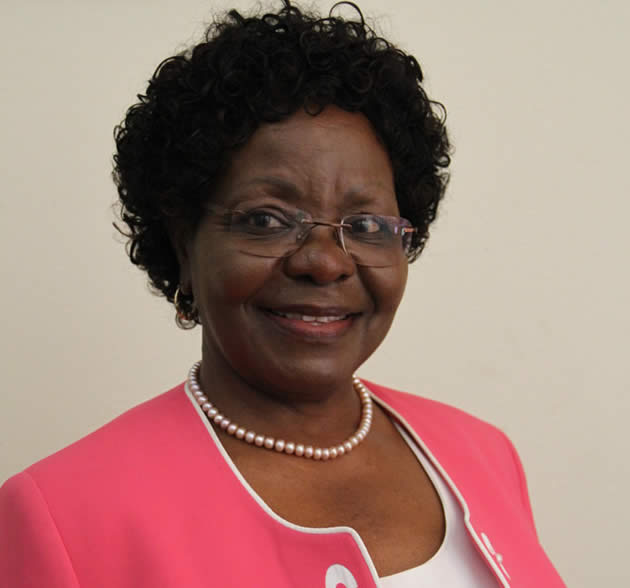Empowering women is the smart thing to do

Yoliswa Dube-Moyo
Margaret Thatcher, the longest-serving British prime minister of the 20th century and the first woman to hold that office was right to say, “If you want something said, ask a man; if you want something done, ask a woman.”
Women have consistently proven to be doers, the gender that makes things happen — even under difficult circumstances and strained resources.
The Covid-19 pandemic has presented numerous economic vulnerabilities of which women have been at the centre of it all.
They have had to shoulder the extra burden of caring for sick family members and contributing a significant chunk of the family income as the world continues to fight this invisible enemy.
History has however proven that once you empower a woman, you empower the whole nation and the Ministry of Women Affairs, Gender and Community Development through the Zimbabwe Women’s Microfinance Bank (ZWMB) realise this.
Through the SMEs Covid-19 support fund, the ZWMB has been on a countrywide drive to empower women with assets they can use for income generation projects. SMEs have over the years been contributing significantly to the country’s gross domestic product although most had taken a knock from the national lockdown imposed to help slow the spread of the coronavirus.
Minister of Women Affairs, Gender and Community Development Sithembiso Nyoni said it was important to support female-run SMEs as empowering them meant families were well taken care of. She said the SMEs Covid-19 support fund would first benefit small business owners who manufacture machinery to be disbursed under the ZWMB asset loan facility as it was important to support local value chains.
Minister Nyoni said her ministry wants to be true to devolution whose purpose is to empower local people.
“The machinery to be disbursed in Bulawayo must be manufactured by SMEs from the city. We’ll even open a shop just for machines which women can easily access. You then go to the bank so that the bank can buy the machine you want and then you can go home and produce,” said Minister Nyoni.
She said the asset loan facility was also an opportunity for those who are employed but earn little to create extra income streams.
“This is how a lot of countries are doing it. People make use of more than one income stream. We want to support anybody who is professional and wants to make extra money by contributing to the economy. The value chain approach for machines made in Bulawayo to empower a woman who is going to produce a product whose primary source is from her environment will encourage value addition,” said Minister Nyoni.
The aim of the project, she said, was to support the production of different merchandise for sustainable income. The programme has been launched in Harare, Esigodini, Chipinge and Bulawayo, among other parts of the country.
The major strength of Zimbabwe’s SMEs is their flexibility in adapting to changes in market tastes and shocks with the transition of SMEs to big business being pivotal in any economy in the world.
Experts say it is actually the relative measure of how well an economy is performing as SMEs are the seed-bed of business growth, innovation and pillars of employment creation.
Mrs Florence Mlalazi, small business owner in Bulawayo said a vibrant economy would be a ripple effect of an empowered female population.
“I’ve been running a small peanut butter making business but I’ve been struggling to contain costs because I’ve had to pay someone to make the peanut butter for me. I buy peanuts and packaging and get someone to process the nuts.
“Having my own peanut butter making machine will definitely cut costs for me. It will also mean my product will be more affordable as I will no longer have to pay a middle man,” said Mrs Mlalazi.
She said she dreamed of growing her business to a point where she can produce to supply local supermarkets.
“As it stands, I can only supply to a few regular customers but with more financial support and the machine, my business has potential to grow into so much more,” said Mrs Mlalazi.
It is hoped that sustainable SMEs will culminate in the revival of Bulawayo industries which is critical towards achieving national economic growth targets under the Government’s Transitional Stabilisation Programme.
Bulawayo industries should come to the fore given the city’s strategic positioning to markets and its historical comparative advantages as the manufacturing hub of Zimbabwe. While immediate focus is directed at reclaiming the domestic market, which has been dominated by imports following the collapse of several firms in recent years, the revival of Bulawayo industries should also be aimed at expanding the supply market beyond regional borders.
There is no doubt that the manufacturing sector has an important role to play in creating high value jobs and production of value added goods that can fetch more export earnings.
ZWMB chief executive officer Dr Mandas Marikanda said the country is consistently focused on empowering women to achieve economic growth.
She said women have been known to be at the lower end of the food chain but the bank recognises that women have big ideas which need funding.
“When the Women’s Bank was set up, it was meant to bring solutions to issues of financial exclusion. Money follows anyone who has a good idea, including women. The country has a vision of becoming a middle-income economy by 2030 and we’re not leaving anyone behind. Women will be able to borrow machines to support their enterprises,” said Dr Marikanda.
It is possible for the country to attain import substitution, she said. “Why should we buy soap, cooking oil, drinks or petroleum jelly from across the border when we have women who can make these products locally? The Women’s Bank comes with equipment that responds to your needs, we don’t impose machines on you but help you achieve your dreams,” said Dr Marikanda.
She added: “Women have a spirit of servitude, ministry, providing for food and bringing solutions where there are no solutions. Women make things happen. It’s important to be deliberate. It’s a ‘you and me’ drive that says women matter. We make up 51 percent of the population so we can’t continue to say women are disadvantaged.”
Through the Women’s Bank, women will be able to borrow assets useful in their income generation projects. Despite the setback experienced in recent months, surviving SMEs have exhibited persistence and resilience. Also, several Bulawayo firms are exporting and repositioning themselves as regional players supplying goods to the communities of neighbouring countries within the Southern African Development Community and Africa as a whole.
Experts say manufacturing industries should play a key role in addressing the social needs of the communities and markets they serve in the way they do business.
Mr Simba Kahwazva, the sales manager of Mighty Fandy Trading, one of the suppliers of grinding mills, mining equipment such as hammer mills, compressors, jack hammers, water pumps and generators, which will be available as asset loans, said the ministry’s stance to support local SMEs will accelerate the revival of industries in Bulawayo.
“We’ve been negotiating with the ZWMB on prices and other logistics and they’ve approved our machines which they have said are of good quality. We’re happy that the minister is prioritising Bulawayo businesses. This will help us to grow and encourage us to manufacture more machines as demand grows,” said Mr Kahwazva.
President Mnangagwa recently launched a $25 million fund to resuscitate SMEs through the ZWMB following Covid-19 economic disruptions.
The programme, whose main beneficiaries are women, will be supporting economic activities including detergent making (sanitisers and soap), in response to Covid-19, sewing masks, bread making, producing non-disposable sanitary pads, school uniforms, personal protective clothing, peanut butter making, maputi production, producing mealie-meal, market gardening and stock feed production among others.
SMEs contribute half of the world’s economic output and employ two-thirds of the global workforce thereby emphasising the need to support them, particularly those owned and run by women. — @Yolisswa










Comments